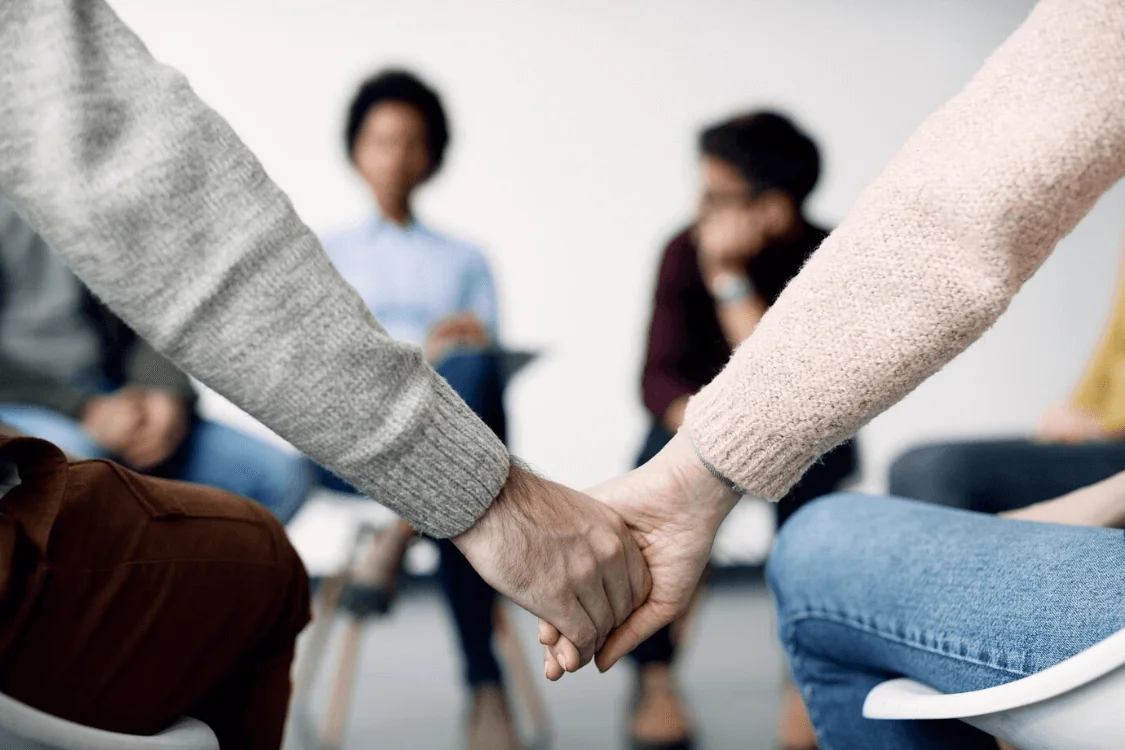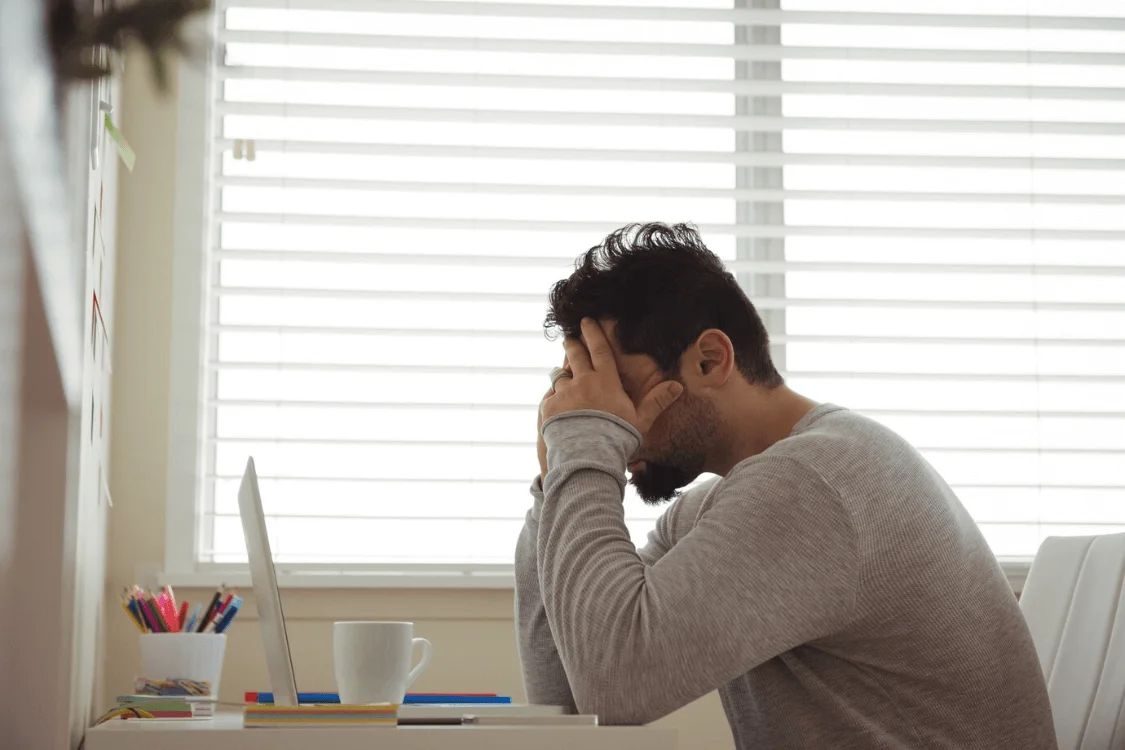
Social Media Addiction Treatment
At Twilight Recovery Center in Tijuana, Mexico, we recognize the serious impact that excessive social media use can have, especially on young adults and adolescents. As this form of addiction becomes more prevalent, we are committed to offering comprehensive treatment solutions tailored to combat its effects.
Our facility provides a variety of therapeutic approaches, including inpatient treatment, to help individuals regain control and rebuild healthier social interactions.

Social Media Addiction Statistics

Social media addiction is emerging as a critical issue worldwide, impacting a broad range of individuals. Notable findings include that 98% of young adults aged 16 to 24 in Western countries are internet users, according to an Ofcom study. It is estimated that up to 10% of the US population may be addicted to social media.
Facebook’s internal data from 2021 indicated that about 12% of its users exhibit signs of compulsive engagement. Research by the National Institutes of Health in 2017 found that 4.5% of adolescents and young adults are affected by social media addiction. A study from the University of Chicago Booth School of Business ranks the urge to check social media as one of the most potent modern-day temptations.
In the UK, a 2016 study observed that women are more prone to social media addiction than men. Children spending over three hours daily on social media show a 27% higher likelihood of experiencing poor mental health. Surprisingly, 55% of drivers admit to checking social media while driving, underscoring the pervasive nature of this addiction.
These statistics illuminate the growing concern over excessive social media app use and its potential to disrupt daily life and mental well-being.
Why Do People Become Addicted to Using Social Media?
Social media addiction stems from the instant gratification and validation received through likes, comments, and shares, which trigger dopamine release in the brain’s reward pathways. This continuous cycle can lead to increased reliance on social media for emotional satisfaction, manifesting as a behavioral addiction.
Excessive use can elevate stress, disrupt attention spans, and increase anxiety due to doomscrolling. Recognizing these impacts is crucial for seeking effective treatment, such as inpatient programs, to manage and reduce dependency on social media.
Negative Consequences of Becoming Addicted to Social Media

Excessive use of social media can lead to various negative outcomes, significantly affecting mental health and daily life. Addiction to social media often results in diminished productivity, as the time that could be spent on meaningful activities or with family and friends is instead consumed by digital interactions.
This shift can lead to social isolation and the degradation of personal relationships. Furthermore, constant exposure to the curated highlights of others’ lives can trigger feelings of inadequacy, anxiety, and depression.
Physically, prolonged use can reduce activity levels and disrupt sleep patterns, leading to broader health issues. As these effects accumulate, they can manifest in poor performance in professional or academic settings, heightened social anxiety, and overall decreased life satisfaction. Recognizing these impacts is crucial for anyone struggling with social media addiction to seek appropriate treatment and regain a balanced lifestyle.
Why Do People Become Addicted to Using Social Media?
Social media addiction stems from the instant gratification and validation received through likes, comments, and shares, which trigger dopamine release in the brain’s reward pathways. This continuous cycle can lead to increased reliance on social media for emotional satisfaction, manifesting as a behavioral addiction.
Excessive use can elevate stress, disrupt attention spans, and increase anxiety due to doomscrolling. Recognizing these impacts is crucial for seeking effective treatment, such as inpatient programs, to manage and reduce dependency on social media.
How Social Media Usage Affects The Brain
Social media affects the brain similarly to how addictive substances do by triggering the release of dopamine—a neurotransmitter linked to pleasure. This biochemical reward compels users to frequently check their feeds for new likes, comments, and shares, reinforcing a cycle of behavior that can be hard to break.
Over time, this constant need for social validation can rewire the brain’s reward pathways, making social media interactions nearly compulsive. This dynamic can lead to an increase in social media usage despite potential negative consequences on mental health and productivity, effectively creating patterns akin to those seen in substance addiction. Understanding these neurological impacts is critical for addressing and treating social media addiction effectively.
Treatment Options for Social Media Addiction
At our center, we understand how challenging overcoming social media addiction can be, which is why we offer a variety of treatment options. Each approach is designed to help individuals regain balance, control their usage, and enhance their overall well-being. Our compassionate, evidence-based treatments are tailored to meet the unique needs of each person we support. Let’s explore how these therapies can make a meaningful difference in your life or that of a loved one.

Cognitive Behavioral Therapy (CBT)
CBT is highly effective in treating social media addiction by helping individuals identify and modify the problematic thought patterns and behaviors that contribute to their compulsive use of social media. This therapy focuses on understanding the links between thoughts, feelings, and behaviors and developing practical skills to manage the urges of checking social media impulsively.

Dialectical Behavior Therapy (DBT)
DBT provides patients with new skills to manage painful emotions and decrease relationship conflict. This therapy is particularly helpful for those whose social media addiction is linked to emotional regulation difficulties. DBT emphasizes mindfulness, distress tolerance, emotional regulation, and interpersonal effectiveness, providing a robust toolkit for managing addiction-related challenges.

Psychodynamic Therapy
This therapy explores the deep-seated psychological roots of addictive behavior, often linking current addiction patterns to unresolved conflicts or past traumas. Psychodynamic therapy can uncover underlying issues that fuel the addiction, such as a need for validation, fear of missing out (FOMO), or low self-esteem, which are exacerbated by social media dynamics.

Group Therapy
Group therapy sessions at Twilight Recovery are designed to foster a supportive environment where individuals can share their experiences and learn from others facing similar challenges. This collective therapeutic approach helps diminish the sense of isolation that often accompanies social media addiction, reinforcing shared experiences and recovery strategies.
At Twilight Recovery Center, we integrate these therapies within a comprehensive treatment framework that addresses not just the addiction itself but also the co-occurring disorders that may accompany or contribute to addictive behaviors. This holistic approach ensures that all aspects of the individual’s well-being are addressed, paving the way for a successful recovery and a healthier, more balanced life.
Excessive Social Media Usage And Mental Health

Chronic social media use is increasingly recognized as a significant factor contributing to mental health issues such as depression, anxiety, and feelings of loneliness. While social media offers numerous benefits, its overuse can lead to a deterioration in mental well-being.
Platforms like Instagram and Facebook often prompt users to compare their everyday lives with the idealized online representations of others, exacerbating feelings of inadequacy and dissatisfaction.
Research indicates that frequent users of social networks may perceive others as happier and more successful than themselves, particularly when these connections are not strong in real life.
This comparison can deeply affect one’s self-esteem and overall mental health. For instance, the phenomenon known as the fear of missing out (FOMO) can intensify social anxieties, as users constantly view updates of events they are not part of. This leads to a persistent feeling of exclusion and affects their social relationships and academic or professional performance.
Given these impacts, it is essential to address the psychological effects of social media within therapeutic settings. At Twilight Recovery Center, we focus on understanding and treating the underlying issues associated with excessive social media use, helping individuals achieve a healthier, more balanced approach to their online and offline lives.
Social Media Addiction in Teens
Teens are especially susceptible to social media addiction, which can significantly impact their academic performance, relationships, and mental health. Engaging with social media sites and apps for extended periods has become prevalent, especially among young users who spend considerable time on social networks. This excessive use of social media may lead to compulsive behaviors driven by the brain’s reward system.
Psychological and Social Consequences
Excessive engagement with social networking sites can lead to anxiety, depression, and social isolation. Teens immersed in these platforms may suffer from reduced face-to-face interactions, which are essential for developing social skills. The culture of comparison prevalent on social media can also amplify feelings of inadequacy, further exacerbated by the constant exposure to the curated images and lives of others.


Cyberbullying and Online Safety
Social media platforms can expose teens to cyberbullying and online harassment, impacting their mental health severely. The platforms can facilitate harmful behaviors like rumor spreading and sharing personal images without consent, leading to emotional trauma. The time spent on social media also increases the risk of encountering such negative experiences.
Managing the Addiction
Combating social media addiction involves setting clear usage boundaries, promoting offline activities, and, when necessary, seeking professional help through inpatient or residential treatment providers. Therapies like CBT and DBT are effective in treating these addictive behaviors by helping teens develop healthier coping mechanisms.
Addressing social media addiction early can help teens navigate their digital interactions more safely and healthily, reducing the detrimental effects of social media and fostering a healthier balance between online and offline life.

Most Used Social Media Platforms in the World
Globally, platforms such as Facebook, Instagram, and TikTok lead the charge regarding usage, offering distinct features that deeply engage users.
Facebook connects users with friends and family, enabling the sharing of detailed life updates, photos, and news articles, which can keep users logged in for extended periods. Instagram capitalizes on visual content, where users scroll through a seemingly endless feed of photos and videos, often leading to prolonged sessions as they engage with visually appealing or influencer-generated content.
TikTok, known for its short, addictive video format, hooks users with its algorithmically curated streams that are tailor-made to keep them watching and interacting. These platforms are designed to capture and hold attention, often making it difficult for users to disconnect, thereby increasing the risk of developing addictive habits.
Get Help for Problematic Social Media Use
If you or someone you know is struggling with an addiction to social media, it’s important to seek professional help. Treatment centers like ours offer specialized programs designed to address the unique challenges posed by this modern addiction. Contact us today to get started.
Frequently Asked Questions about Social Media Addiction Treatment
What Are the Common Signs of Social Media Addiction?
Social media addiction is characterized by several signs, including spending excessive time on social media sites, neglecting real-life interactions, and experiencing emotional symptoms when social media use is restricted. Users often feel a compulsion to check their social media constantly and may suffer from anxiety or withdrawal symptoms if they are unable to do so.
How Does Social Media Addiction Impact Behavior and Mental Health?
The impact of social media addiction can be profound, affecting both behavior and mental health. It often leads to reduced face-to-face interactions and can exacerbate or contribute to mental health issues such as anxiety and depression.
Over time, excessive social media use can lead to behavioral addictions, where individuals prioritize social media over other life activities and responsibilities.
What Treatment Options Are Available for Social Media Addiction?
Treatment for social media addiction may include inpatient or outpatient therapy programs that focus on behavioral addiction. These treatments often involve cognitive behavioral therapy to address the issues underlying the addiction and can include group therapy to provide social support.
Social media addiction treatment centers offer structured programs designed to reduce excessive use and mitigate its effects.
Can Internet Addiction Be Treated at the Same Facilities that Handle Social Media Addiction?
Yes, treatment facilities that address social media addiction often also deal with internet addiction, as the two are closely related. These centers provide comprehensive care that includes education about internet and social media addiction, strategies for managing time online, and therapies to reduce dependence on digital interactions.
How Can Social Media Users Prevent Addiction and Promote Healthier Use?
Preventing social media addiction involves recognizing the signs of unhealthy use and taking proactive steps to limit time spent on social platforms.
Strategies include setting specific times for social media use, using apps to limit daily usage, and prioritizing real-life interactions over online ones. Education about the potential negative effects of excessive use can also help users maintain a balanced approach to social media.



